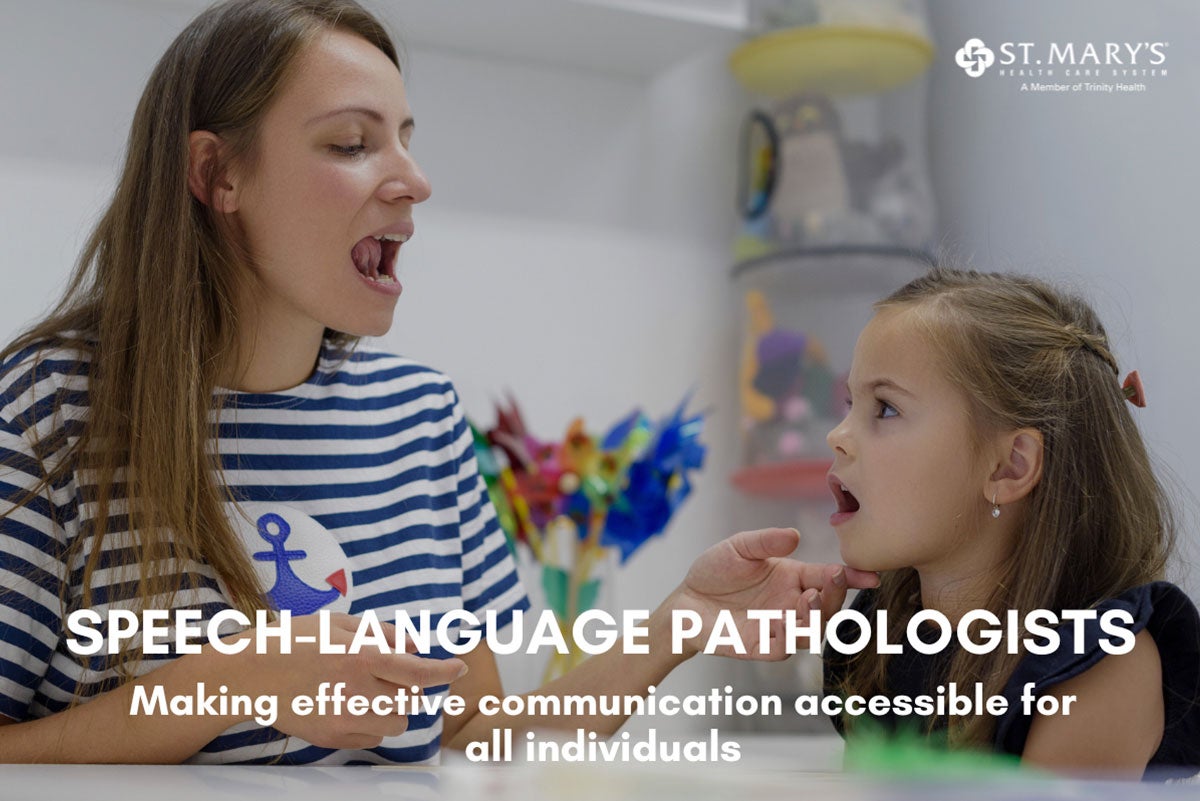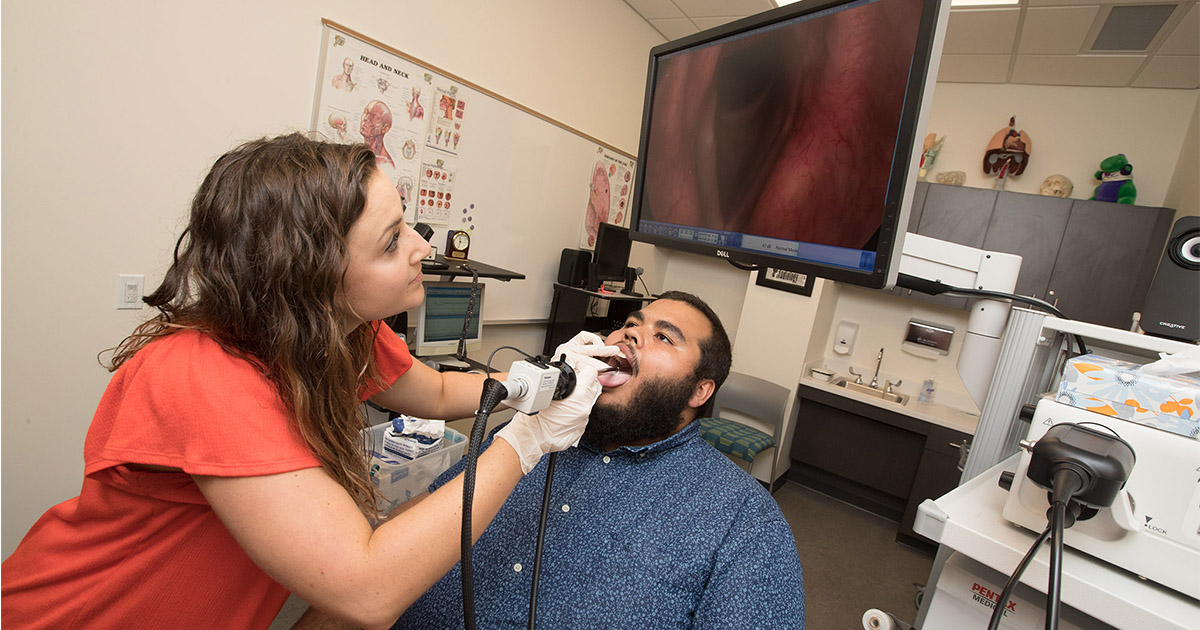Learn How a Speech Pathologist Can Assist with Swallowing Issues
Learn How a Speech Pathologist Can Assist with Swallowing Issues
Blog Article
How a Speech Pathologist Can Help Improve Interaction Abilities
Efficient communication is a keystone of expert and personal success, yet several individuals face difficulties that hinder their capability to reveal themselves plainly. A speech pathologist is geared up to address these obstacles through targeted evaluation and intervention strategies tailored to each person's requirements.
Understanding Interaction Disorders
Comprehending interaction disorders is vital for recognizing exactly how they impact individuals' capacity to express themselves and involve with others. Communication conditions incorporate a large array of problems that influence speech, language, and social interaction, typically preventing efficient interaction. These problems can occur from different factors, including neurological problems, developing delays, physical disabilities, or emotional issues.
Speech problems might manifest as problems in expression, fluency, or voice manufacturing, affecting exactly how words are noticable or talked. Language disorders, on the other hand, include obstacles in understanding or using language, which can hinder both spoken and non-verbal interaction. Social communication disorders are defined by troubles in the pragmatic aspects of communication, such as taking kip down discussion or understanding social cues.
The repercussions of communication conditions are extensive, impacting not just the person's capacity to convey thoughts and emotions but also their social connections, instructional possibilities, and overall quality of life. Understanding of these disorders can promote empathy and assistance, encouraging effective techniques for communication and interaction. Comprehending the complexities of interaction disorders is an important action towards promoting inclusivity and attending to the requirements of those influenced.
Role of a Speech Pathologist
Speech pathologists frequently play an important role in diagnosing and treating interaction conditions, utilizing a variety of evidence-based methods customized to every individual's needs. These specialists deal with individuals throughout the life expectancy, from children with speech hold-ups to grownups recovering from strokes or terrible brain injuries. Their knowledge encompasses a selection of interaction issues, consisting of articulation, fluency, voice, and language problems.
In restorative settings, speech pathologists make use of structured treatments created to improve interaction skills. They may apply methods such as speech workouts, language games, and social interaction training to promote enhancements in receptive and meaningful language capabilities. Speech Pathologist. In addition, they inform clients and their family members concerning effective interaction methods and flexible techniques to navigate day-to-day interactions
Beyond straight therapy, speech pathologists team up with various other healthcare educators, specialists, and caregivers to guarantee a thorough approach to treatment. They promote for customers by providing resources and support, allowing people to attain their communication goals and improve their general top quality of life. As specialists in the field, speech pathologists are necessary in cultivating reliable interaction, advertising independence, and enhancing social participation for those with communication difficulties.
Evaluation and Diagnosis Process
The evaluation and diagnosis process carried out by speech pathologists normally entails a thorough analysis to recognize interaction problems precisely. This procedure begins with an in-depth instance background, where the clinician gathers important info about the individual's clinical, instructional, and developing history. Comprehending the context of the individual's communication difficulties is essential for an accurate medical diagnosis.
Adhering to the instance background, speech pathologists use casual evaluations and standardized examinations to examine different aspects of interaction, consisting of speech noise production, language comprehension, meaningful language, and social communication abilities. These evaluations are tailored to the person's age and certain issues, providing beneficial information for analysis.
Monitoring is likewise an important component of the evaluation process, as it enables the medical professional to see firsthand exactly how the private communicates in natural settings. Additionally, meetings with member of the family and teachers can provide insight into the individual's interaction challenges across different environments.
As soon as the examination is total, the speech pathologist synthesizes the findings to identify a medical diagnosis and suggest appropriate treatments. This detailed assessment process guarantees that people get targeted support tailored to their one-of-a-kind communication demands, laying the foundation for efficient healing strategies.
Restorative Techniques and Techniques
Countless therapeutic methods and approaches are used by speech pathologists to resolve a range of communication disorders successfully. One extensively used technique is articulation therapy, which concentrates on remedying speech seems with repeating and visual signs. This strategy is particularly valuable for individuals with speech sound disorders.
One more efficient approach is language treatment, which boosts both expressive and receptive language skills. This may involve interactive activities that promote vocabulary development, sentence structure understanding, and conversational skills. Furthermore, speech pathologists commonly make use of social abilities educating to enhance practical language capacities, allowing people to browse social interactions much more effectively.
Fluency shaping and stuttering adjustment methods are particularly developed to assist those experiencing fluency disorders. These methods help clients create smoother speech patterns and take care of the psychological and physical elements of stuttering.
In addition, augmentative and different interaction (AAC) systems are used for individuals with extreme interaction disabilities. These systems, which can include motions, signs, or electronic devices, provide essential assistance for efficient communication.
Advantages of Speech Treatment

Additionally, speech treatment can aid in creating crucial listening and comprehension skills, promoting much better interaction in conversations. Individuals with cognitive-communication conditions can likewise benefit, as therapy concentrates on reinforcing memory and analytic capacities, crucial for reliable interaction.
One more crucial aspect is the emotional assistance supplied during therapy sessions. Speech pathologists develop a secure atmosphere, motivating people to get rid of anxiousness and frustration relevant to their communication concerns. This support can lead to enhanced self-esteem and total mental health.
Furthermore, very early intervention with speech therapy can stop further issues, guaranteeing that people reach their full communicative possibility. Overall, the advantages of speech treatment prolong past read this post here mere speech enhancement, favorably affecting numerous dimensions of life for those impacted by interaction difficulties.
Final Thought
In recap, speech pathologists play an important duty in addressing communication problems through evaluation, medical diagnosis, and customized therapeutic interventions. By using evidence-based techniques, these experts improve people' speech and language capabilities, fostering enhanced quality, fluency, and social communication skills. The benefits of early treatment emphasize the importance of seeking support from speech pathologists, as their proficiency can substantially boost communicative possibility, inevitably leading to greater success in both personal and expert rounds.

Speech pathologists frequently play an essential role in treating and detecting interaction disorders, employing an array of evidence-based methods customized to each individual's needs. As professionals in the area, speech pathologists are essential in promoting efficient interaction, advertising independence, and improving social involvement for those with interaction challenges.

Report this page